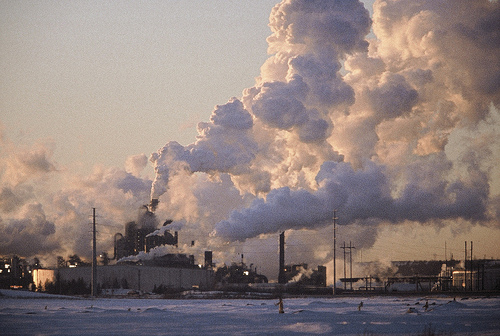Huge news out of British Columbia just now: the province is officially opposing plans to build the Enbridge Northern Gateway Pipeline. The plan—which actually involves two separate pipelines, one moving condensate east to dilute sludge-like bitumen flowing west in a second line—is hugely controversial. It is opposed by a range of interests, including First Nations and environmental advocates who today notched a major victory against the tar sands industry.
The pipeline would initially carry 525,000 barrel per day, roughly the size of the Keystone XL Pipeline’s first phase, but it could be expanded to bring a staggering 800,000 barrels per day to the coast for export.
The government’s rejection of Enbridge gives lie to a claim often made by fossil fuel export boosters: that the fuel will find a way out no matter what. It’s a empty threat whether it’s made by the oil industry or would-be coal exporters. Moving fossil fuels from the remote interior of North America to consumer markets requires major infrastructure, and today’s decision underscores the obvious truth there is absolutely no guarantee the infrastructure will get built.
Coal, oil, and gas do not magically transport themselves to export markets (or domestic markets for that matter). They need pipelines or railways to do it. And they need governments willing to aid and abet fossil fuel shipments. It’s a point that everyone following the Keystone XL Pipeline debate would do well to remember.
Today’s decision is not, unfortunately, a death sentence for the Enbridge pipeline. The project’s proponents have until year’s end to provide additional documentation, and the final decision will be made by the federal government. Nonetheless, the provincial government’s opposition represents a very big roadblock to the pipeline.
If the Northern Gateway project is ultimately rejected, even that would not spell the end of tar sands pipelines in BC. Rather, it shifts the focus to the province’s other major oil pipeline proposal: Kinder Morgan’s plan to drastically expand its Trans Mountain Pipeline that runs through southern BC, bringing fuel from Alberta to the Vancouver region and to refineries in Washington.
In all likelihood, then, the next battle of the tar sands fight will be fought closer to the population centers of Cascadia.
For more about oil pipelines and other fossil fuel infrastructure in BC, see Sightline’s recent report Northwest Fossil Fuel Exports.









